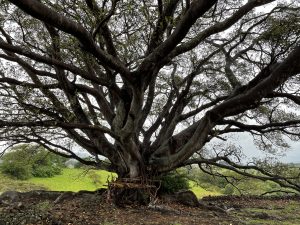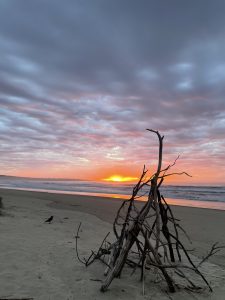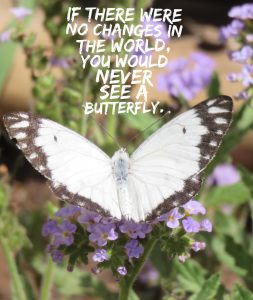
Sharing stories with children
Reading aloud to children was one of my greatest joys as a teacher, a parent and now as a grandparent. So much occurs between you
One thing I noticed during lockdown was the joyous sounds around my neighbourhood of children, of all ages, creating and playing with natural materials found in their own environment. A return to playing in nature. This took me back to my own childhood.
 I lived on a farm and my Mum would say, ‘Just be home when the sun sets.’ Freedom. Climbing trees. Going bush. The farm was our play space, where imagination ruled. We drove the tractor for Dad while he threw the hay out for the cows, at about eight years old. We milked the cows and played in tall stacks of hay in the hay shed building cubbies. Nothing was restricted. Nor were there any major injuries, just a few scrapes and bruises … all part of being a child.
I lived on a farm and my Mum would say, ‘Just be home when the sun sets.’ Freedom. Climbing trees. Going bush. The farm was our play space, where imagination ruled. We drove the tractor for Dad while he threw the hay out for the cows, at about eight years old. We milked the cows and played in tall stacks of hay in the hay shed building cubbies. Nothing was restricted. Nor were there any major injuries, just a few scrapes and bruises … all part of being a child. ![]()
 Think back: what are your fondest memories of childhood play?
Think back: what are your fondest memories of childhood play?
With COVID lockdowns came ‘learning from home’ and the greatest learning that occurred, I believe, was this return to play. I was privileged to observe even children in upper primary having good old-fashioned fun away from screens; away from their formalised schooling; back to nature; and back to rejoicing in learning through play. During my morning walks, I witnessed all types of structures appearing where cubbies/bases provided valuable play and learning experiences and spaces.



Being outdoors in nature offers so many opportunities for both children and adults. There are the physical skills and learning, whether its walking or climbing or negotiating new terrains any way they can. It’s an opportunity for the child to problem solve situations and possibly take a risk. For example, nature is unpredictable, surfaces are uneven, maybe strewn with rocks and branches which you have to negotiate and that are not predictable like the ‘plastic fantastic’ play equipment in most parks.
It’s an all-immersive sensory experience…. new smells; new sounds…. bird calls, the wind in the trees or the waves breaking on the shore; new things to see, touch and feel…and maybe taste!
Imagine the learning that took place whilst building these structure…. Problem solving, negotiation, communication, science and maths concept learning.
So many opportunities …. What else?

Research by Sobko & Brown (2021) found that children who were connected to nature and who enjoyed being in it had less emotional difficulties and paid more attention. They further propose that activities in nature provided positive changes in gut microbiota suggesting that this possibly could lead to lifestyles that are healthier and improved behaviours. Responsibility towards and with nature also increased the more children spent in nature.
Ulset et al (2017) propose that an accessible and cheap environmentally friendly method of supporting and enhancing the child’s cognitive functioning and self -regulatory behaviour and skills may be extensive exposure to outdoor environments and nature.
Richard Louv, 2013, p149
 When was the last time you sat and listened to bird sing? Or laid on the grass and watched the clouds? Or paddled in a river, lake or ocean? Or observed an animal in the wild? How did it feel? Or how does it feel even in your imagination? I can almost hear you sighing and see that look of contentment come over your face.
When was the last time you sat and listened to bird sing? Or laid on the grass and watched the clouds? Or paddled in a river, lake or ocean? Or observed an animal in the wild? How did it feel? Or how does it feel even in your imagination? I can almost hear you sighing and see that look of contentment come over your face.
 Self-care and well-being seem to have become the ‘buzzwords’ of the last few years in an effort to combat the complexity of our experiences and the weight of the expectations that we have pressing on us. Our sector is a challenging workspace that leaves little time in the day to practise self-care. The environment is noisy, busy and, at times, physically and emotionally stressful. Yet we need to be able to care for ourselves before we can care for others effectively.
Self-care and well-being seem to have become the ‘buzzwords’ of the last few years in an effort to combat the complexity of our experiences and the weight of the expectations that we have pressing on us. Our sector is a challenging workspace that leaves little time in the day to practise self-care. The environment is noisy, busy and, at times, physically and emotionally stressful. Yet we need to be able to care for ourselves before we can care for others effectively.
The important thing is that intention and mindset towards well being should become a habit. And this definitely means that we need to add experiences into our diaries that will support our emotional, spiritual, intellectual and social safety, security and well being. It doesn’t have to use large blocks of time to reap the benefit, and should not create more stress if for some reason you miss one of your plans. What it does mean is that you will need to take opportunities to be fully present in that space. For example, if you choose to watch the sun rise each morning, watch it!
Well-being and self-care needs will be different for everybody. But for me there is nothing better than an early morning walk in the bush or on a beach or both if I can organise it! Walking on Country and being in the presence of the natural world for me is calming and readies me for the day ahead. It’s my ‘play time’!
What’s yours?
References:
Louv, R. (2013) Last child in the woods: saving our children from nature deficit disorder. Atlantic Books Limited.
Sobko, T. & Brown, G.T.L. (2021) The Influence of Connectedness to Nature on Psychological Well-Being: Evidence from the Randomized Controlled Trial Play & Grow. Challenges 2021, 12, 12. https:// doi.org/10.3390/challe12010012
Ulset, V., Vitaro, F, Brendgen, M., Bekkhus, M. & Borge, A.I.H. (2017) Time spent outdoors during preschool: Links with children’s cognitive and behavioral development. Journal of Environmental Psychology, 52, 69-80. https://doi.org/10.1016/j.jenvp.2017.05.007
SHARE THIS POST:

Reading aloud to children was one of my greatest joys as a teacher, a parent and now as a grandparent. So much occurs between you

No doubt Educator’s lives and work have changed in some ways since the start of the pandemic and more so during lockdown. Some dramatically whilst